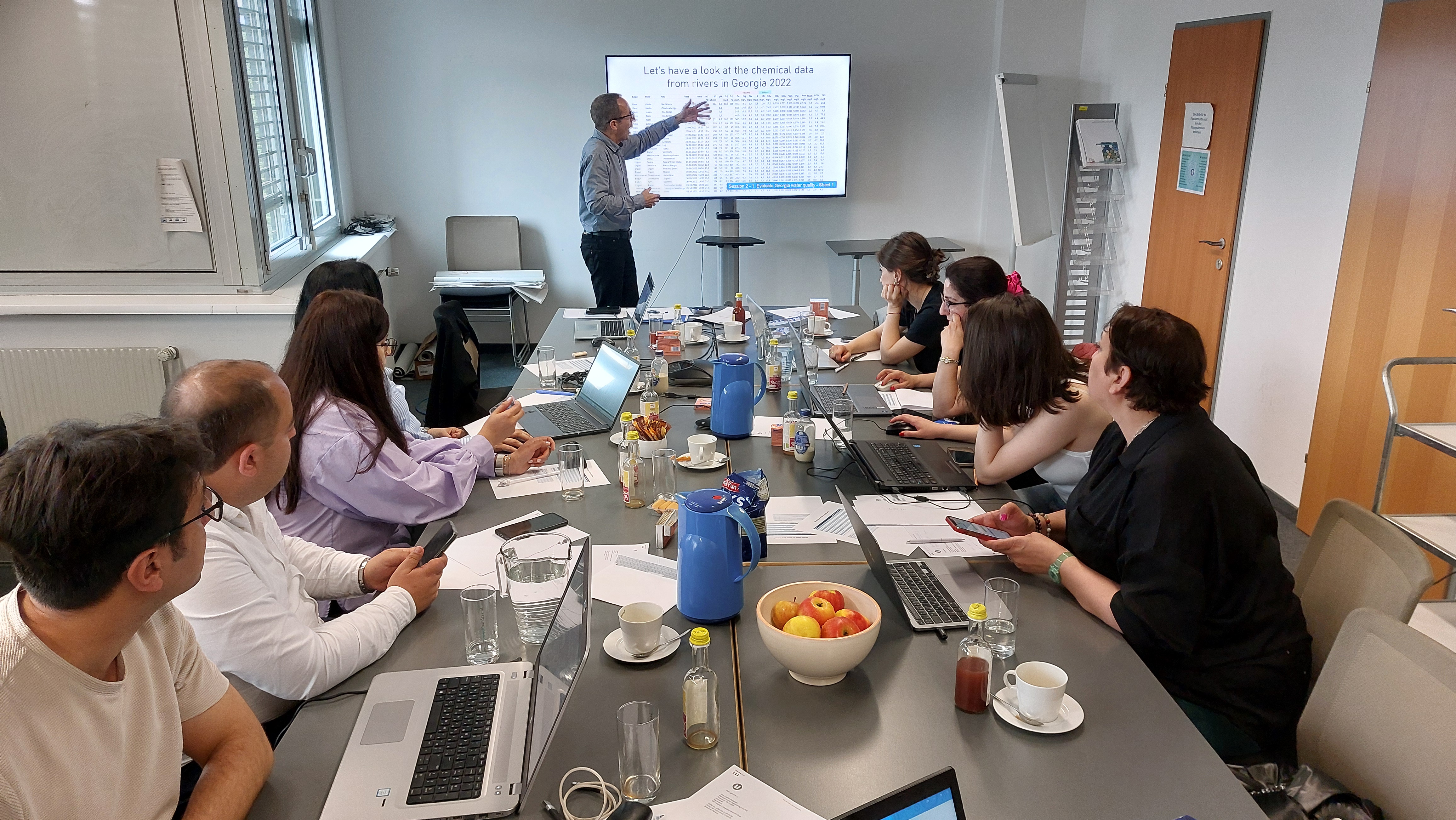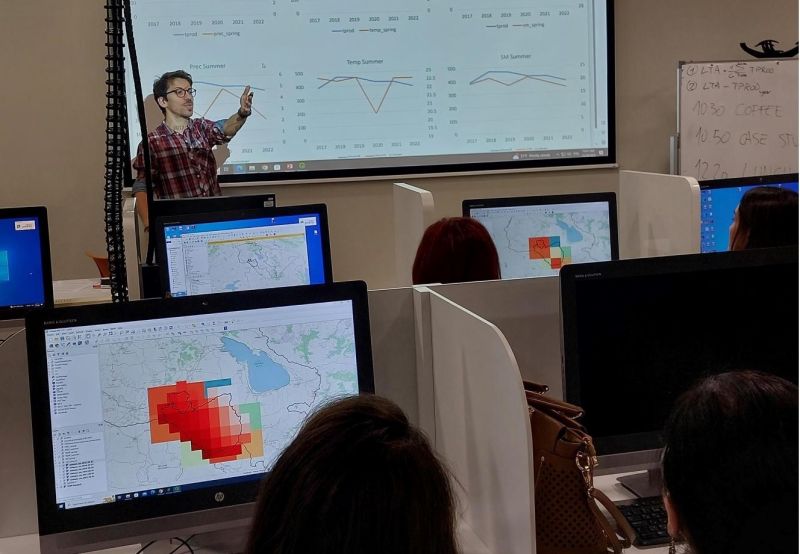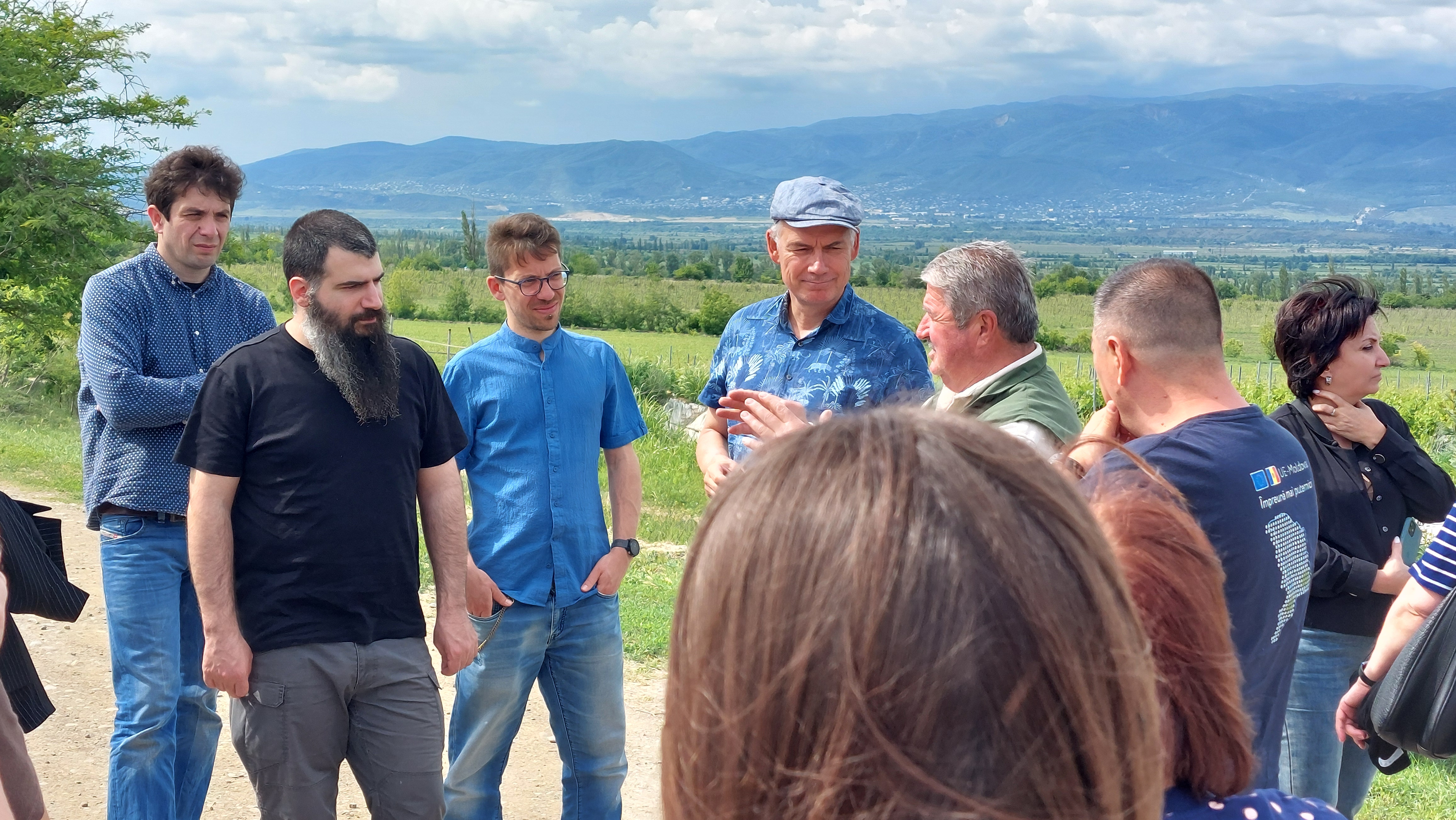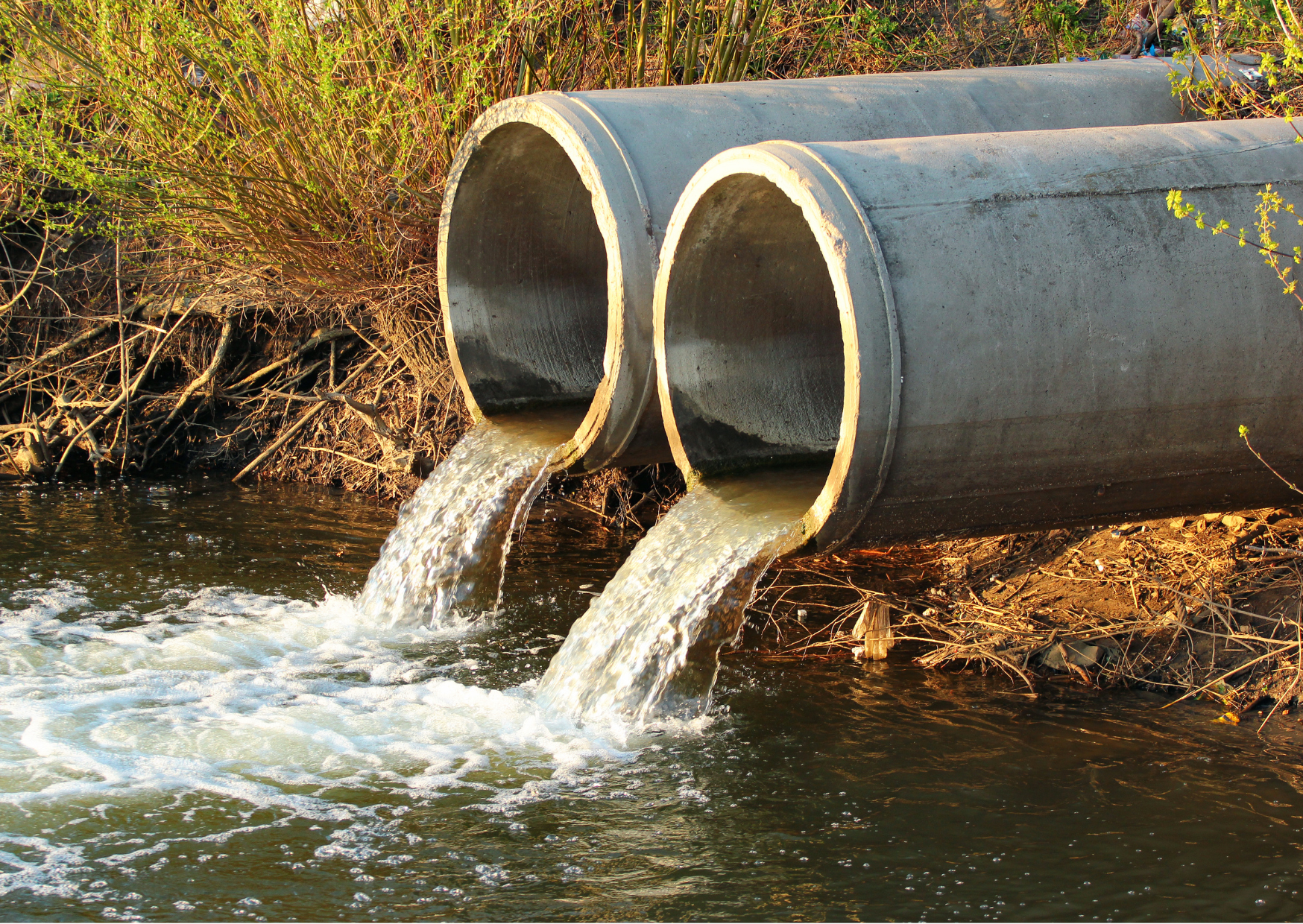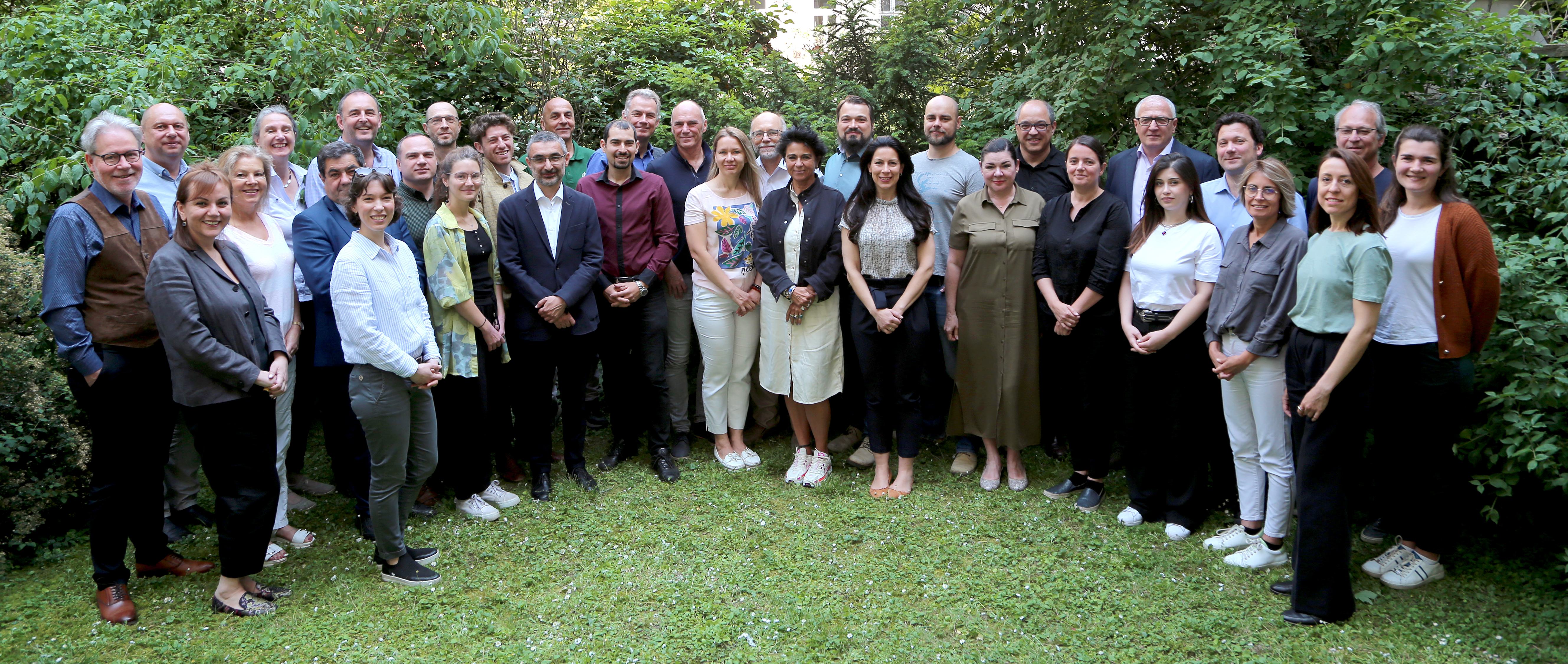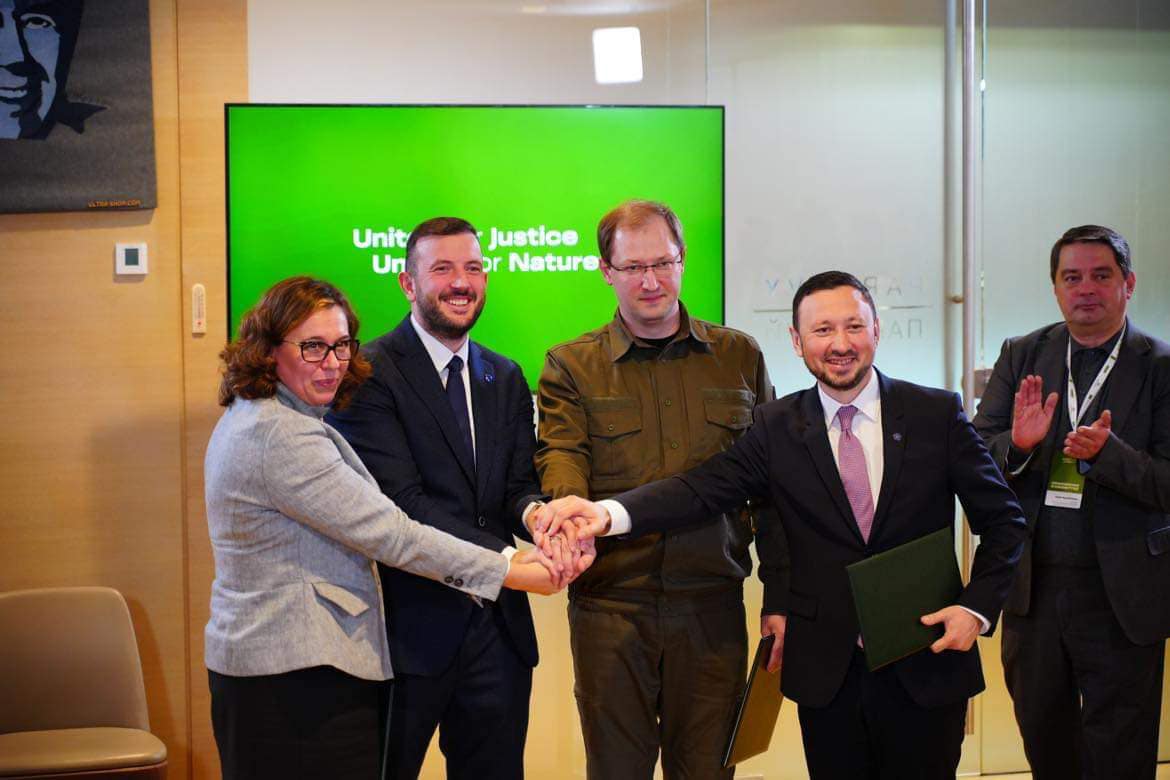- Country: Regional
- Component: Water resources, Environmental Data
The EU4Environment Water Resources and Environmental Data programme recently organized a comprehensive training on surface water data analysis, aligned with the EU Water Framework Directive (WFD). The training sessions, held in Vienna, Austria, were conducted by the Austrian Environment Agency on 21-22 May for Armenian and Georgian professionals and on 28-29 May 2024 for Moldovan and Ukrainian professionals
The training aimed to equip participants with robust data analysis skills necessary for effective water resource management and compliance with the EU Water Framework Directive (WFD).
Participants gained insights into the relevance of the EU directive for water quality and environmental monitoring. The training covered key parameters, methods, and sampling techniques used in water quality assessment within the WFD framework.
Through interactive sessions and practical exercises, participants developed proficiency in various data analysis techniques, statistical tools, and software applications used for evaluating and interpreting water quality data.
The training enhanced participants' skills in identifying trends, anomalies, and compliance with WFD standards through data analysis. Participants also improved their ability to communicate data analysis results effectively using data visualization techniques.


